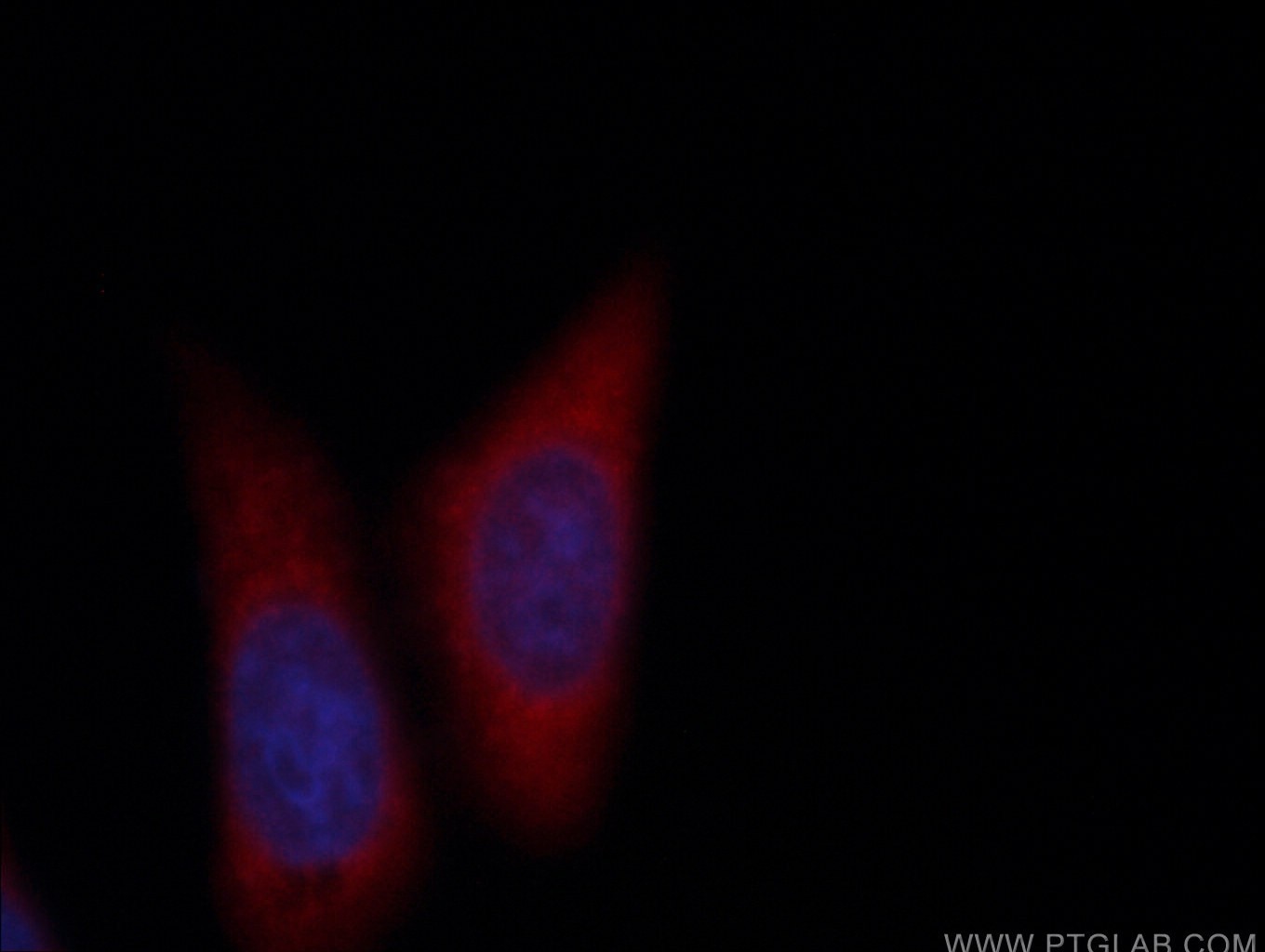Anticorps Monoclonal anti-RAB5A
RAB5A Monoclonal Antibody for IF
Hôte / Isotype
Mouse / IgG2b
Réactivité testée
Humain, porc
Applications
IF
Conjugaison
CoraLite®594 Fluorescent Dye
CloneNo.
1B6A5
N° de cat : CL594-66339
Synonymes
Galerie de données de validation
Applications testées
| Résultats positifs en IF | cellules HepG2, |
Dilution recommandée
| Application | Dilution |
|---|---|
| Immunofluorescence (IF) | IF : 1:50-1:500 |
| It is recommended that this reagent should be titrated in each testing system to obtain optimal results. | |
| Sample-dependent, check data in validation data gallery | |
Informations sur le produit
CL594-66339 cible RAB5A dans les applications de IF et montre une réactivité avec des échantillons Humain, porc
| Réactivité | Humain, porc |
| Hôte / Isotype | Mouse / IgG2b |
| Clonalité | Monoclonal |
| Type | Anticorps |
| Immunogène | RAB5A Protéine recombinante Ag16781 |
| Nom complet | RAB5A, member RAS oncogene family |
| Masse moléculaire calculée | 215 aa, 24 kDa |
| Numéro d’acquisition GenBank | BC001267 |
| Symbole du gène | RAB5A |
| Identification du gène (NCBI) | 5868 |
| Conjugaison | CoraLite®594 Fluorescent Dye |
| Excitation/Emission maxima wavelengths | 588 nm / 604 nm |
| Forme | Liquide |
| Méthode de purification | Purification par protéine A |
| Tampon de stockage | PBS avec glycérol à 50 %, Proclin300 à 0,05 % et BSA à 0,5 %, pH 7,3. |
| Conditions de stockage | Stocker à -20 °C. Éviter toute exposition à la lumière. Stable pendant un an après l'expédition. L'aliquotage n'est pas nécessaire pour le stockage à -20oC Les 20ul contiennent 0,1% de BSA. |
Informations générales
Rab5a belongs to the Rab GTPases family proteins, which play roles in endocytosis, exocytosis, and vesicular transportation. Rab family proteins were recently reported to play important roles in human cancer progression. Rab5a was reported to be overexpressed in breast and ovarian cancers and associated with proliferation and invasion. This anitbody is CL594(Ex/Em 593 nm/614 nm) conjugated.
Protocole
| Product Specific Protocols | |
|---|---|
| IF protocol for CL594 RAB5A antibody CL594-66339 | Download protocol |
| Standard Protocols | |
|---|---|
| Click here to view our Standard Protocols |


